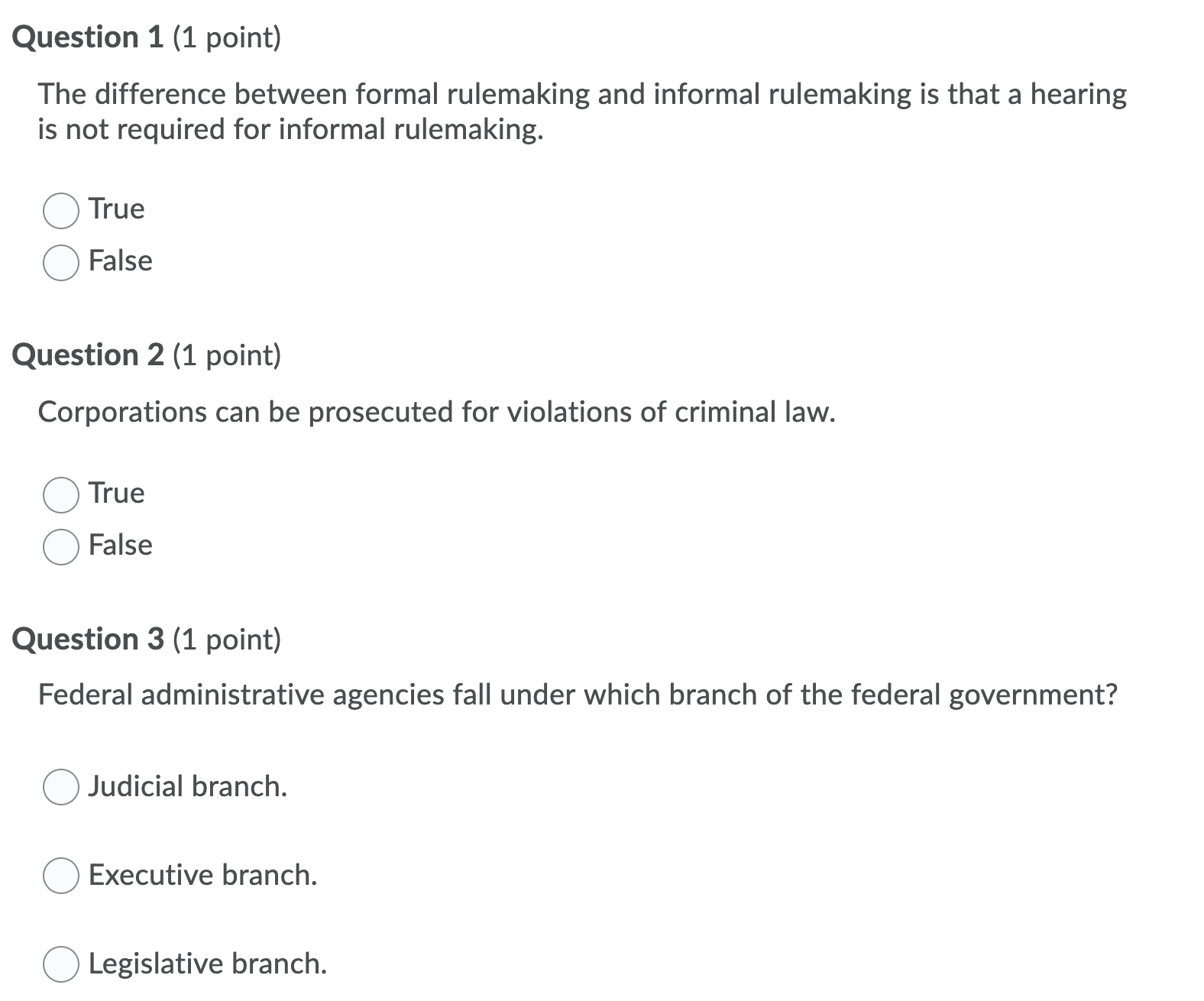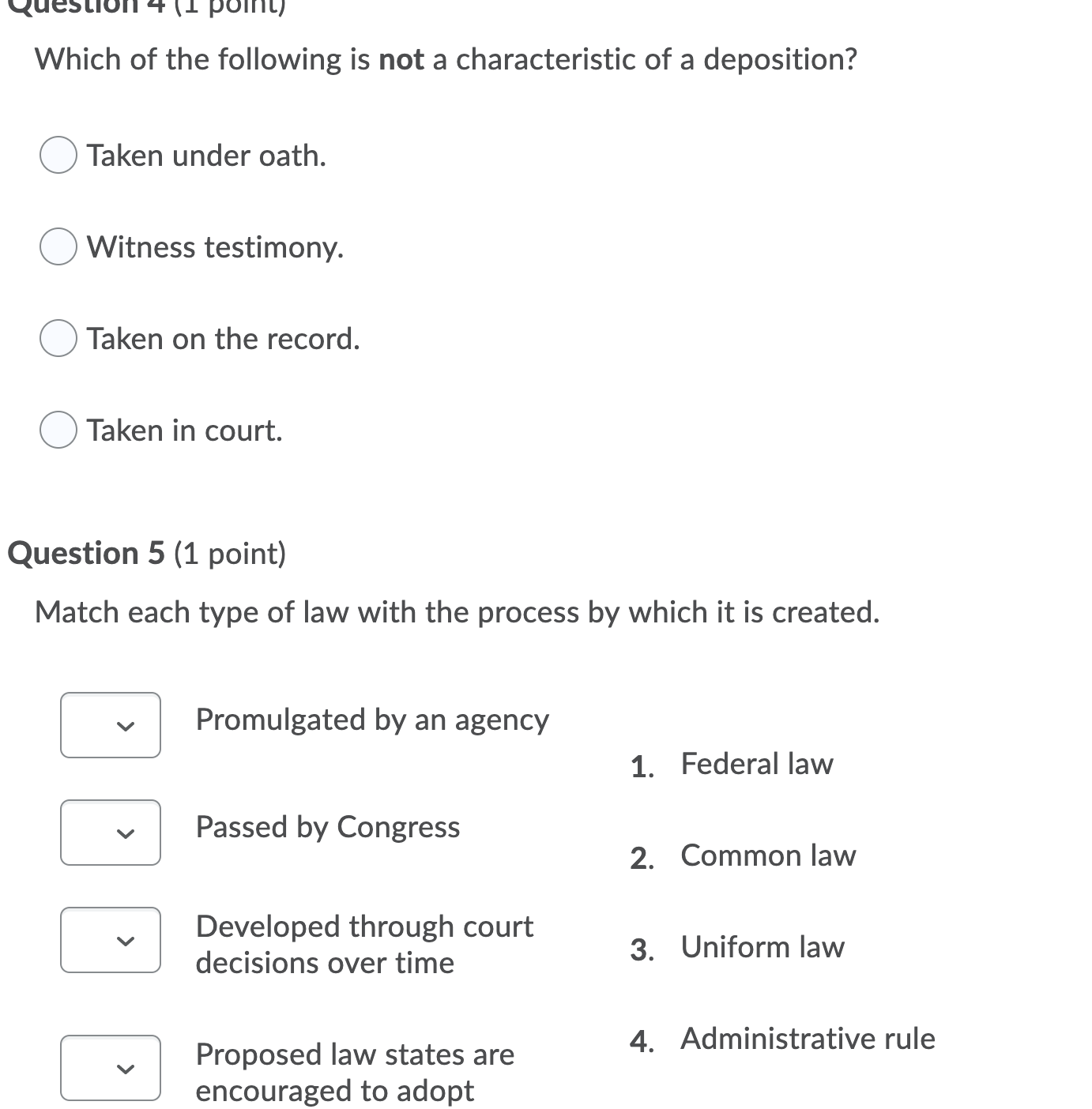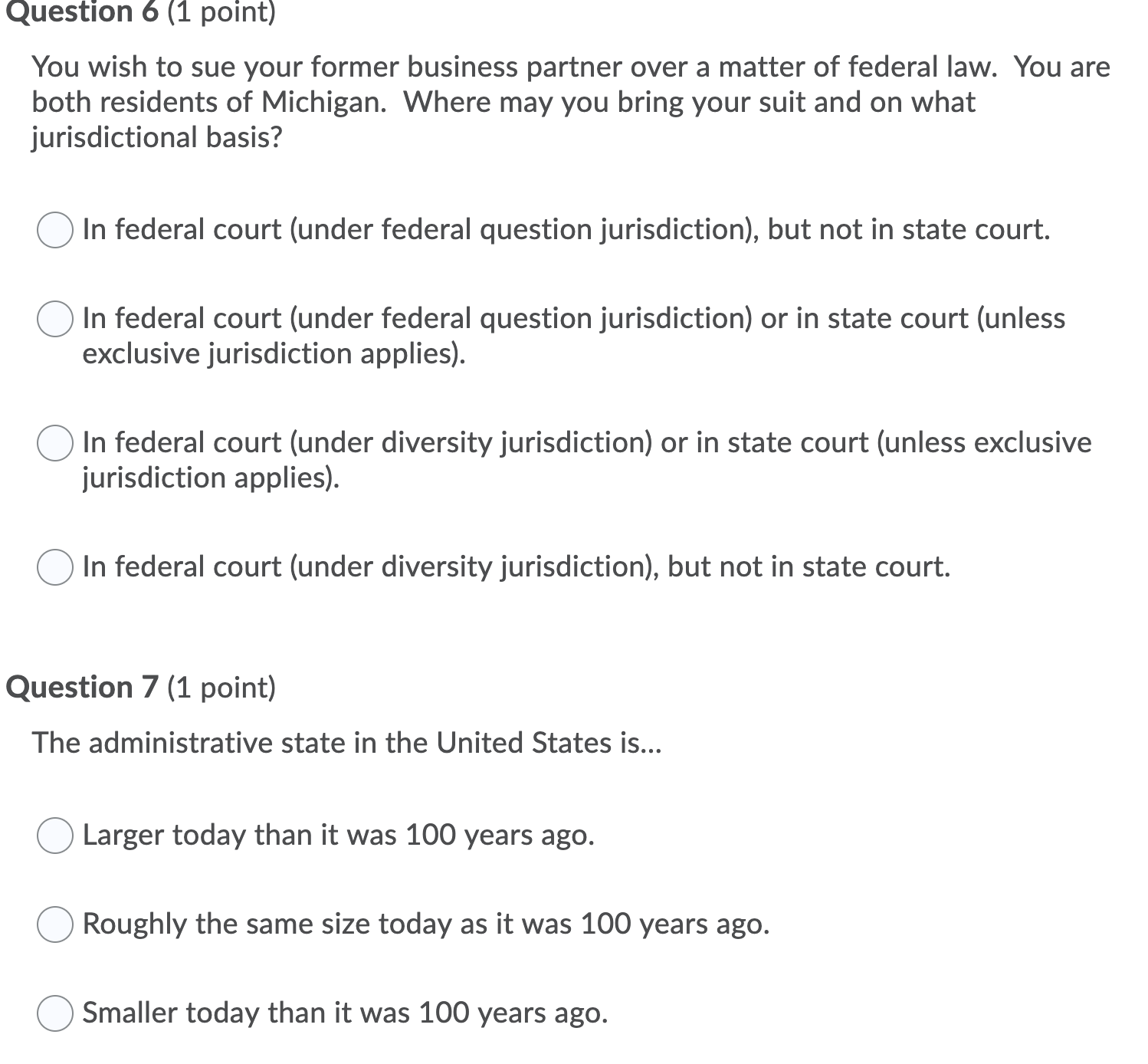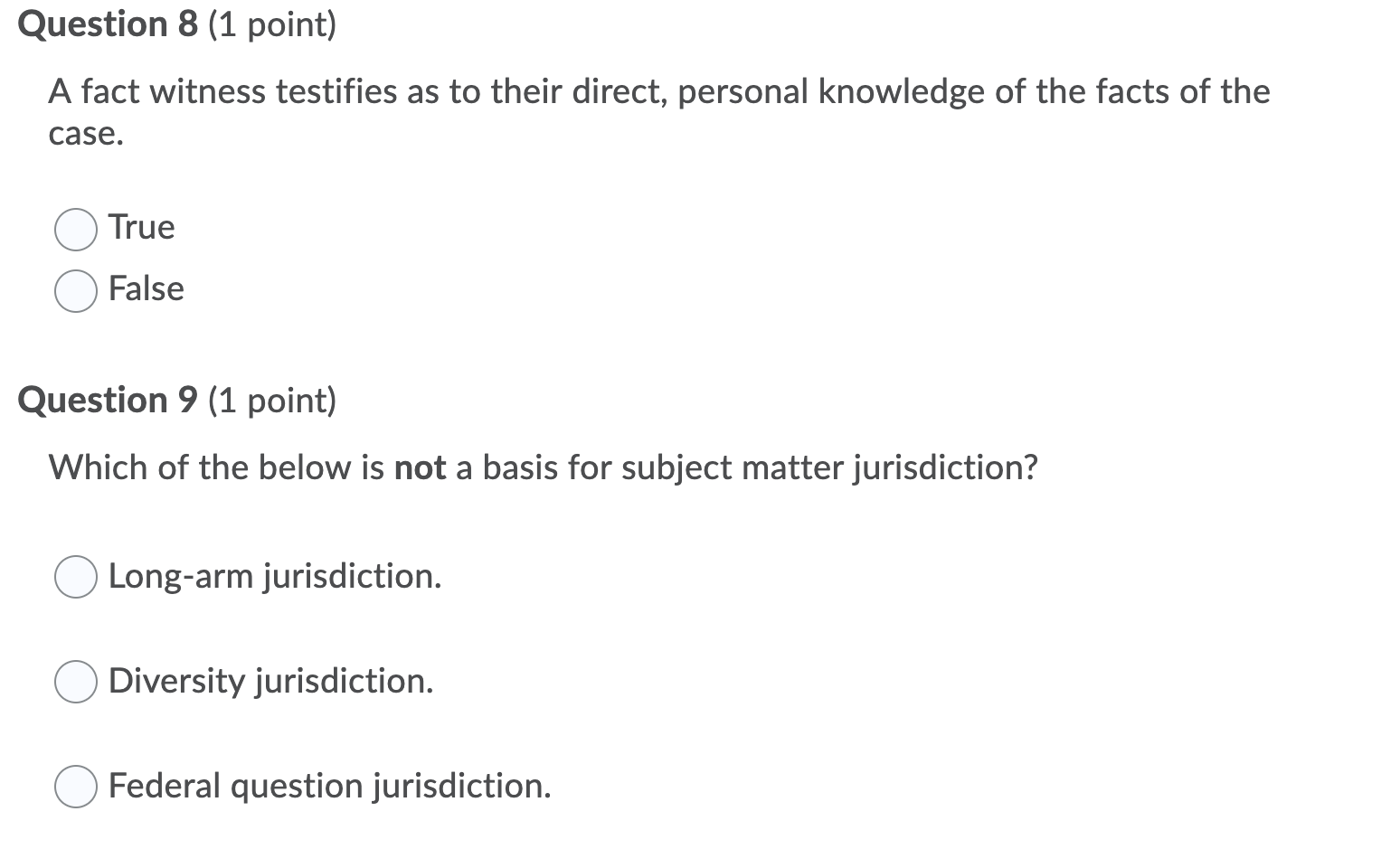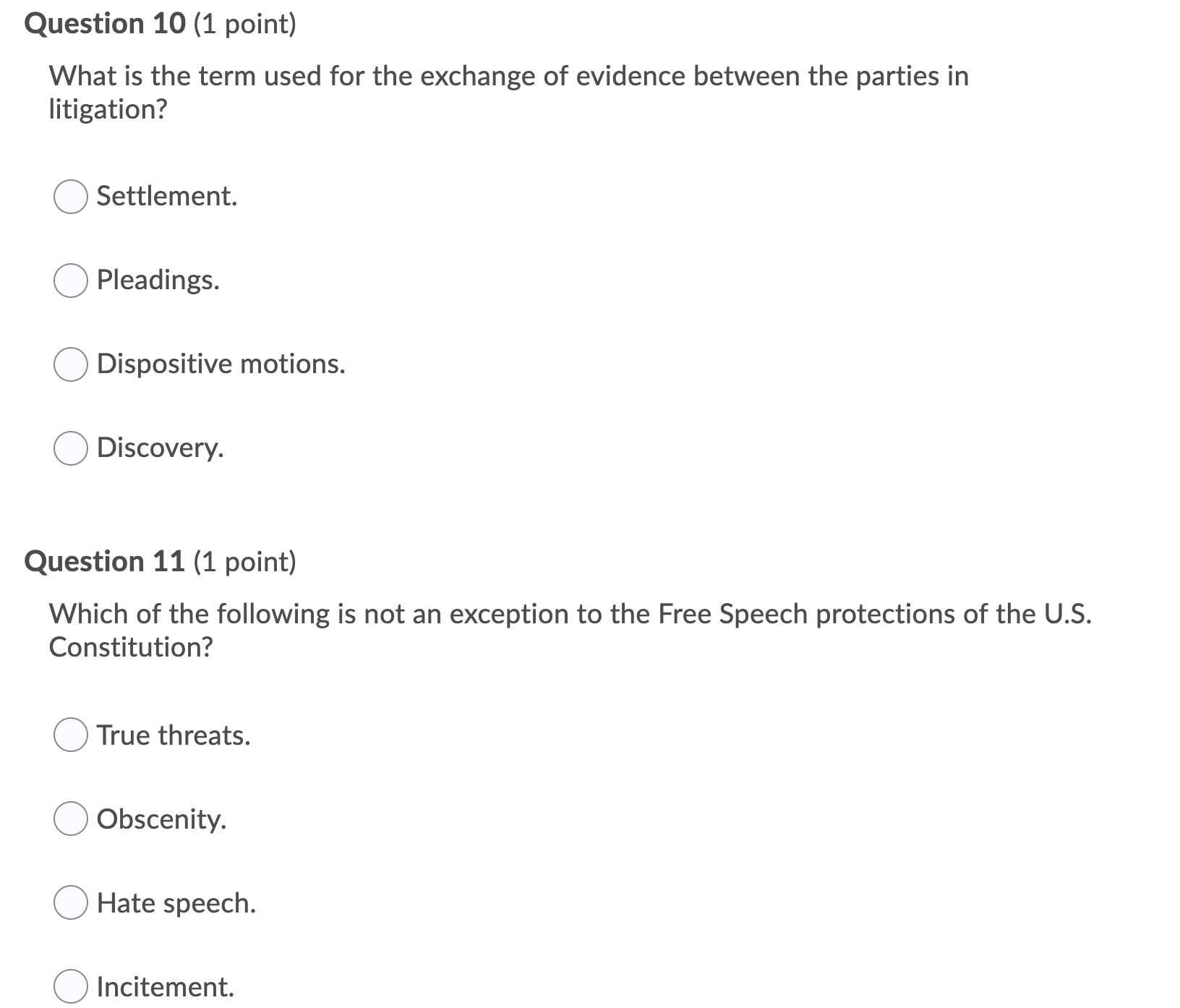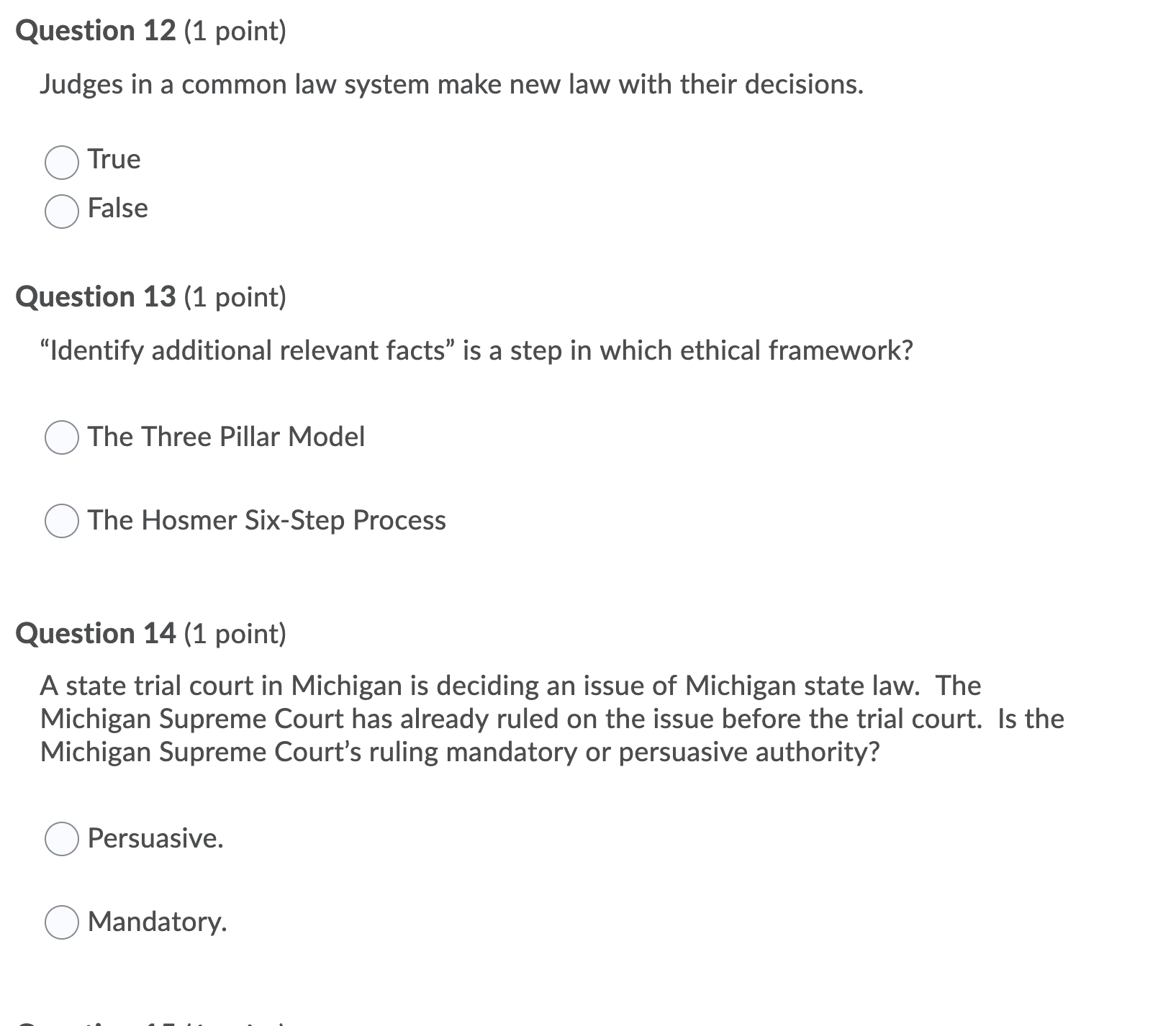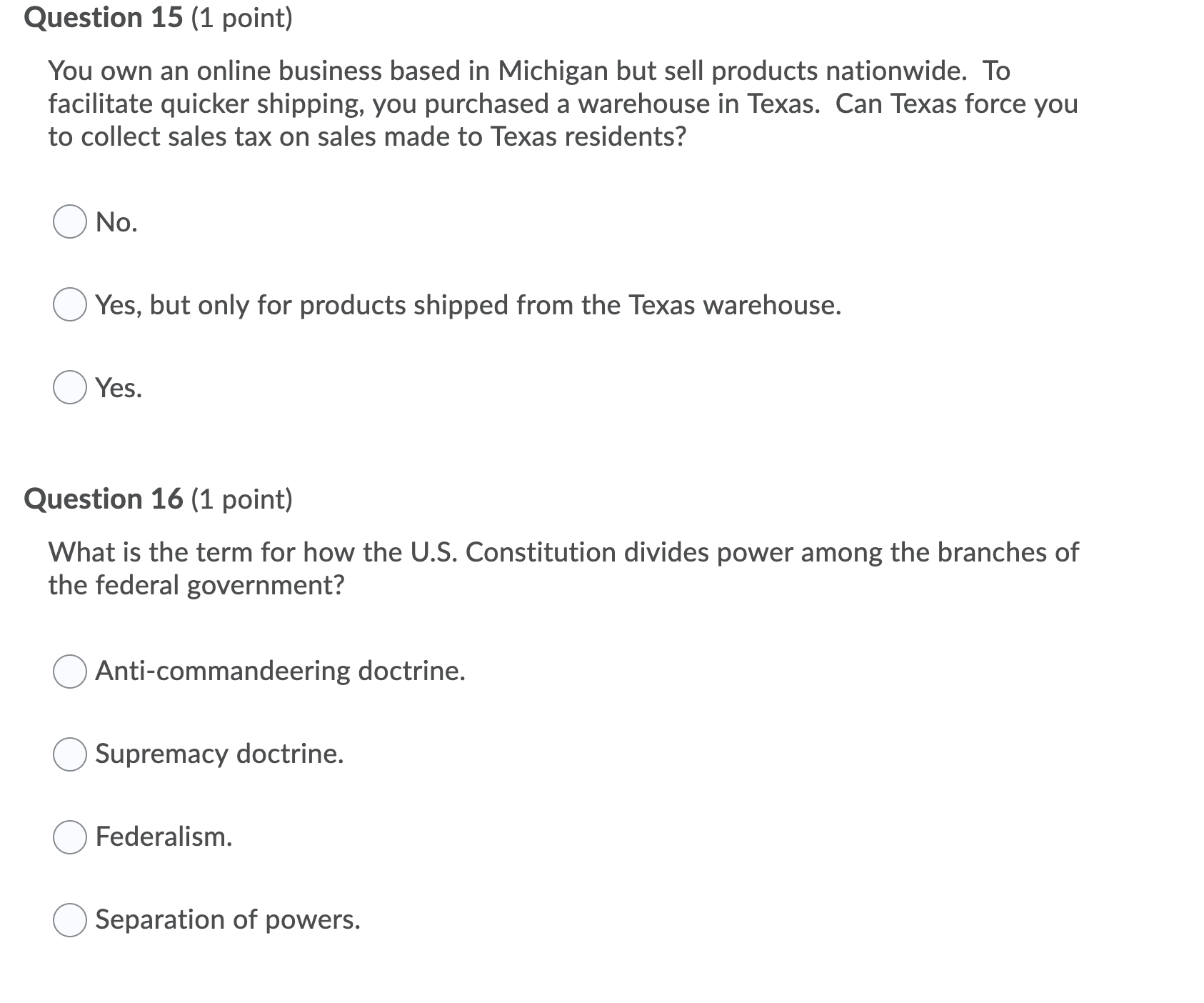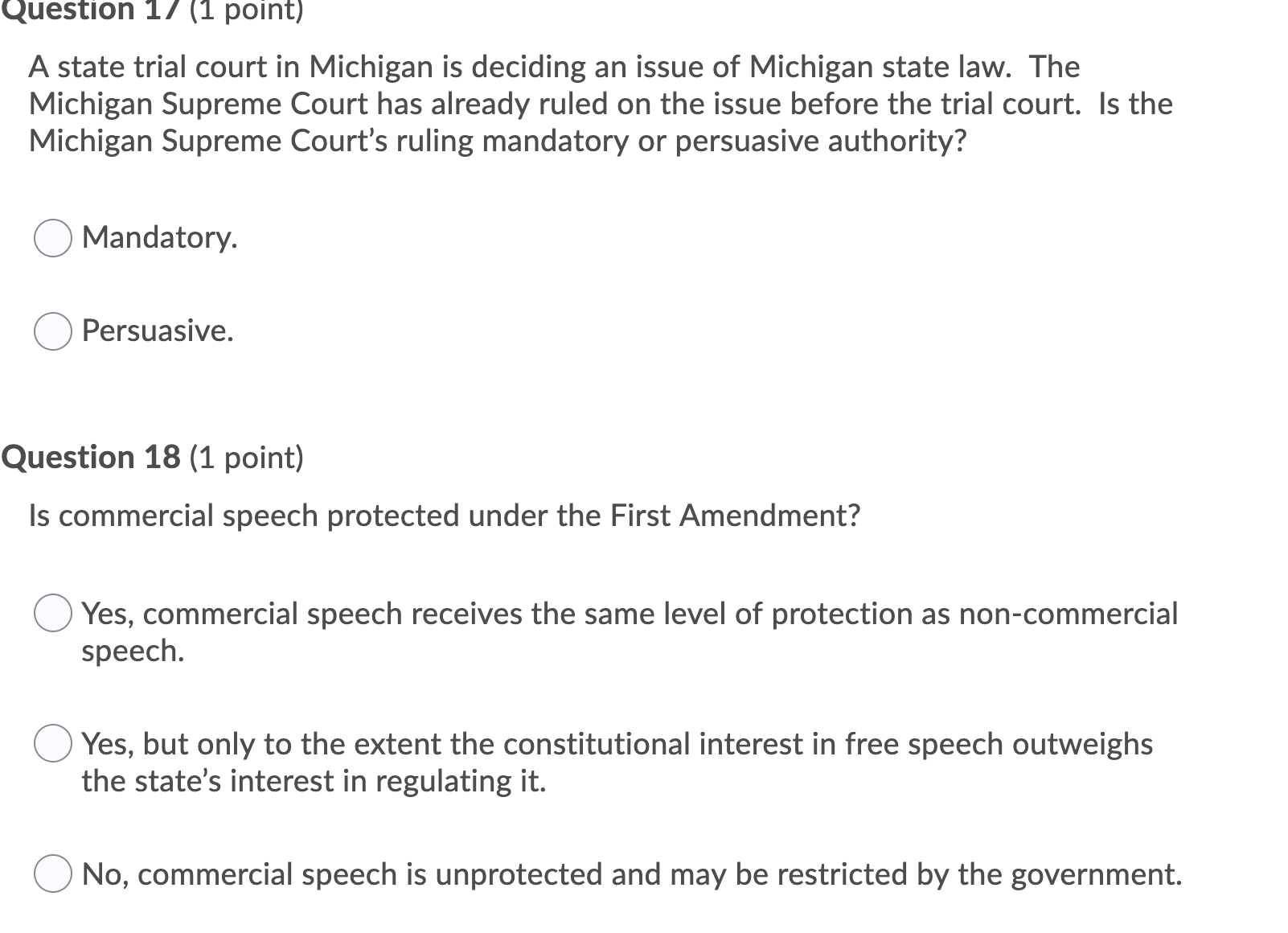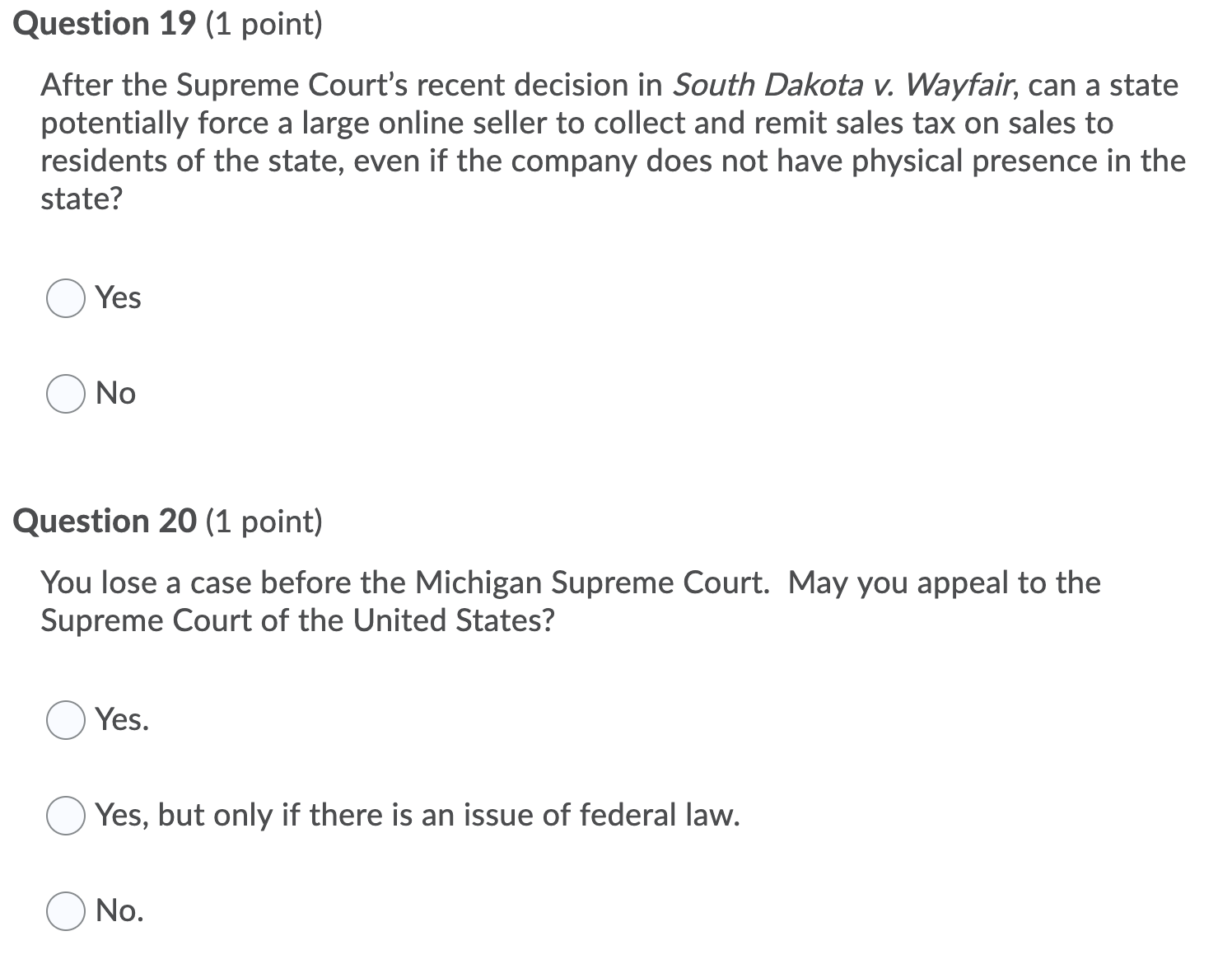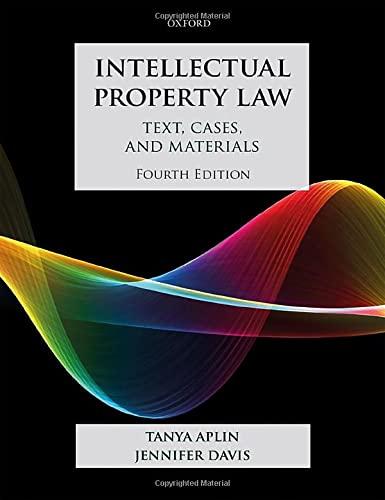can you please answer these question. just the answer no explanation
thank u
Question 1 (1 point) The difference between formal rulemaking and informal rulemaking is that a hearing is not required for informal rulemaking. Question 2 (1 point) Corporations can be prosecuted for violations of criminal law. Question 3 (1 point) Federal administrative agencies fall under which branch of the federal government? O Judicial branch. O Executive branch. 0 Legislative branch. Which of the following is not a characteristic of a deposition? Taken under oath. Witness testimony. Taken on the record. Taken in court. Question 5 (1 point) Match each type of law with the process by which it is created. Promulgated by an agency 1. Federal law Passed by Congress 2. Common law Developed through court decisions over time 3. Uniform law Proposed law states are 4. Administrative rule encouraged to adoptQuestion 6 (1 point) You wish to sue your former business partner over a matter of federal law. You are both residents of Michigan. Where may you bring your suit and on what jurisdictional basis? 0 In federal court (under federal question jurisdiction), but not in state court. 0 In federal court (under federal question jurisdiction) or in state court (unless exclusive jurisdiction applies). 0 In federal court (under diversity jurisdiction) or in state court (unless exclusive jurisdiction applies). 0 In federal court (under diversity jurisdiction), but not in state court. Question 7 (1 point) The administrative state in the United States is... 0 Larger today than it was 100 years ago. 0 Roughly the same size today as it was 100 years ago. 0 Smaller today than it was 100 years ago. Question 8 (1 point) A fact witness testifies as to their direct, personal knowledge of the facts of the case. Question 9 (1 point) Which of the below is not a basis for subject matter jurisdiction? 0 Longarm jurisdiction. 0 Diversity jurisdiction. O Federal question jurisdiction. Question 10 (1 point) What is the term used for the exchange of evidence between the parties in litigation? 0 Settlement. O Pleadings. O Dispositive motions. 0 Discovery. Question 11 (1 point) Which of the following is not an exception to the Free Speech protections of the US. Constitution? 0 True threats. 0 Obscenity. 0 Hate speech. O Incitement. Question 12 (1 point) Judges in a common law system make new law with their decisions. Question 13 (1 point) \"Identify additional relevant facts\" is a step in which ethical framework? 0 The Three Pillar Model O The Hosmer Six-Step Process Question 14 (1 point) A state trial court in Michigan is deciding an issue of Michigan state law. The Michigan Supreme Court has already ruled on the issue before the trial court. Is the Michigan Supreme Court's ruling mandatory or persuasive authority? O Persuasive. O Mandatory. Question 15 (1 point) You own an online business based in Michigan but sell products nationwide. To facilitate quicker shipping, you purchased a warehouse in Texas. Can Texas force you to collect sales tax on sales made to Texas residents? 0 No. 0 Yes, but only for products shipped from the Texas warehouse. 0 Yes. Question 16 (1 point) What is the term for how the US. Constitution divides power among the branches of the federal government? 0 Anti-commandeering doctrine. O Supremacy doctrine. O Federalism. 0 Separation of powers. Question 1/ (1 point) A state trial court in Michigan is deciding an issue of Michigan state law. The Michigan Supreme Court has already ruled on the issue before the trial court. Is the Michigan Supreme Court's ruling mandatory or persuasive authority? 0 Mandatory. O Persuasive. Question 18 (1 point) Is commercial speech protected under the First Amendment? O Yes, commercial speech receives the same level of protection as non-commercial speech. 0 Yes, but only to the extent the constitutional interest in free speech outweighs the state's interest in regulating it. O No, commercial speech is unprotected and may be restricted by the government. Question 19 (1 point) After the Supreme Court's recent decision in South Dakota 1/. Wayfair, can a state potentially force a large online seller to collect and remit sales tax on sales to residents of the state, even if the company does not have physical presence in the state? 0 Yes O No Question 20 (1 point) You lose a case before the Michigan Supreme Court. May you appeal to the Supreme Court of the United States? 0 Yes. 0 Yes, but only if there is an issue of federal law. 0 No
